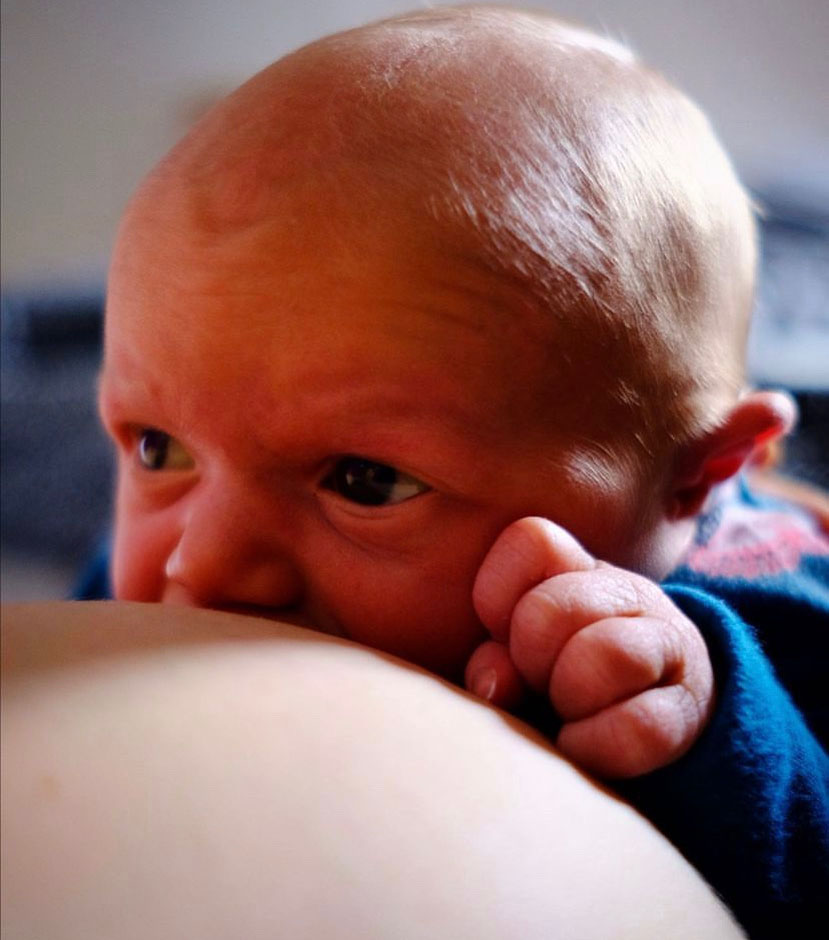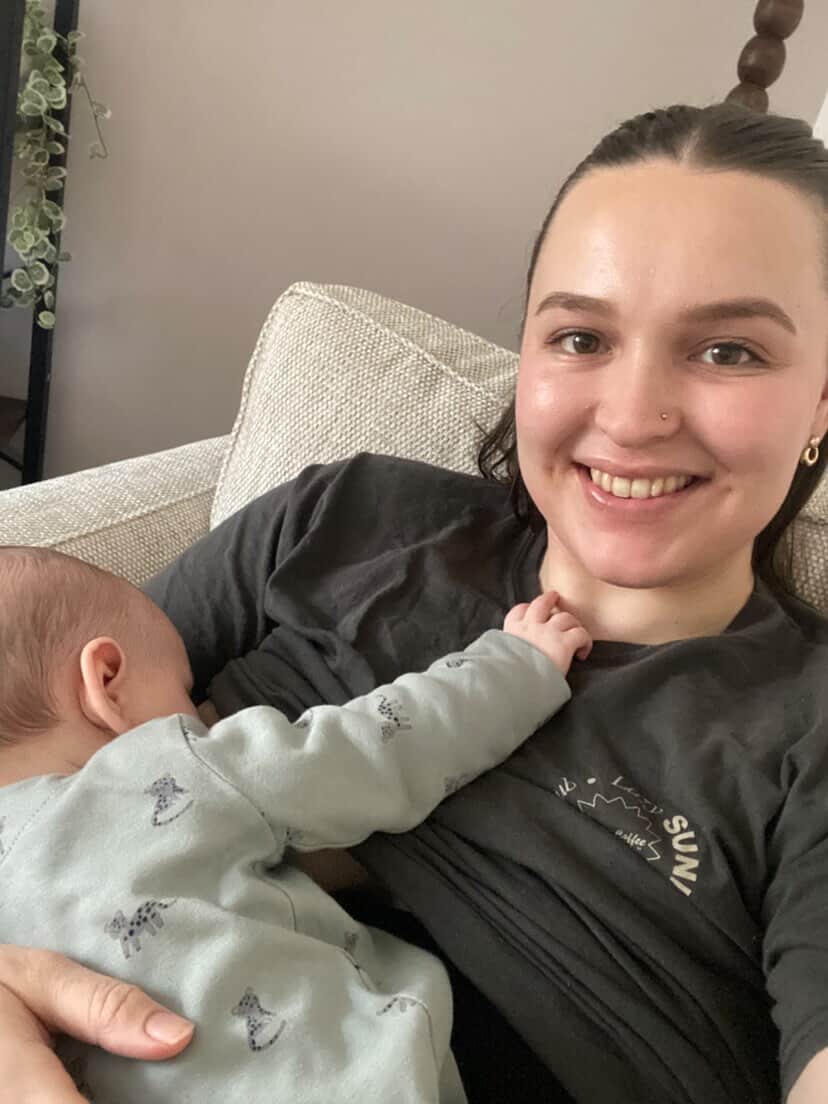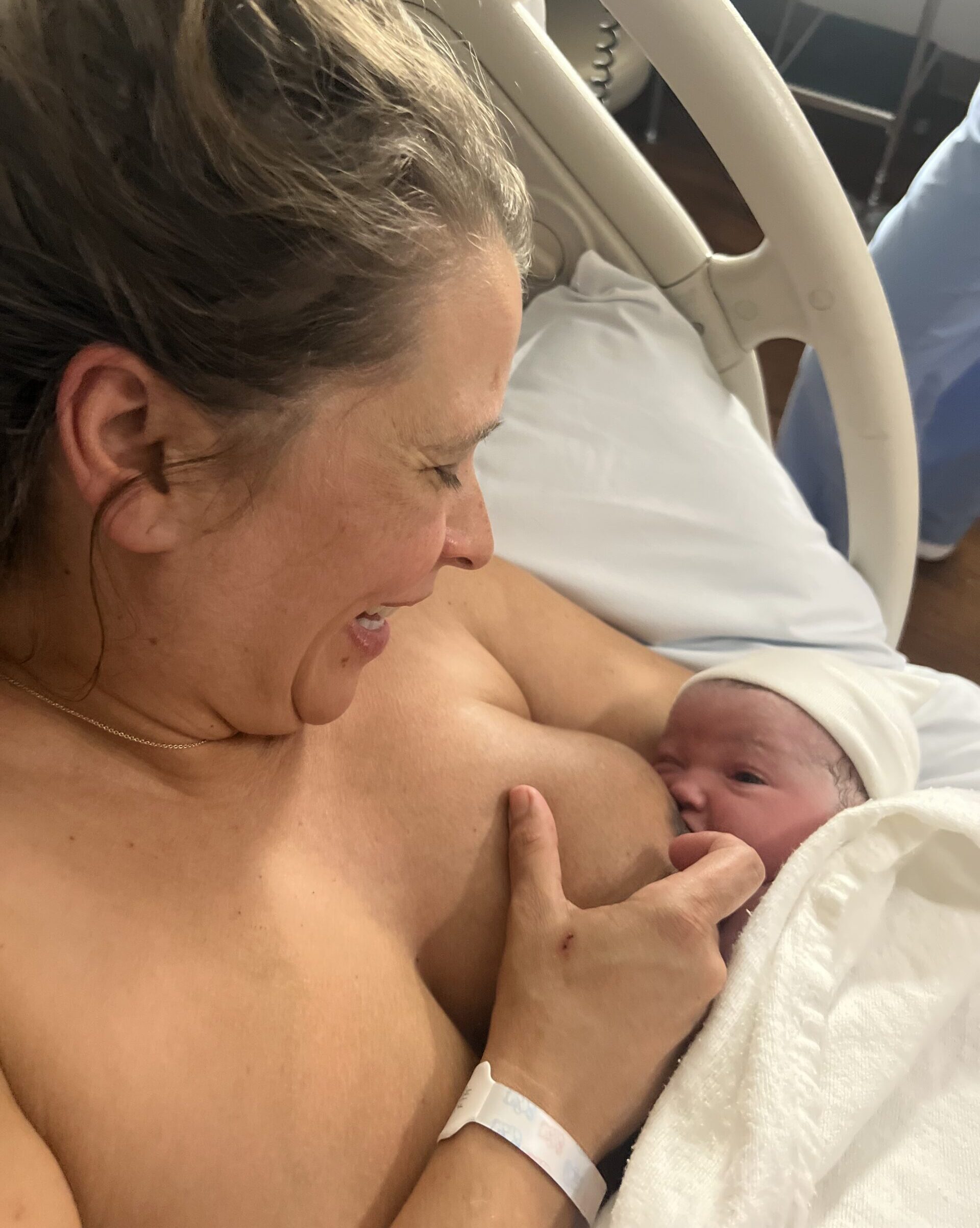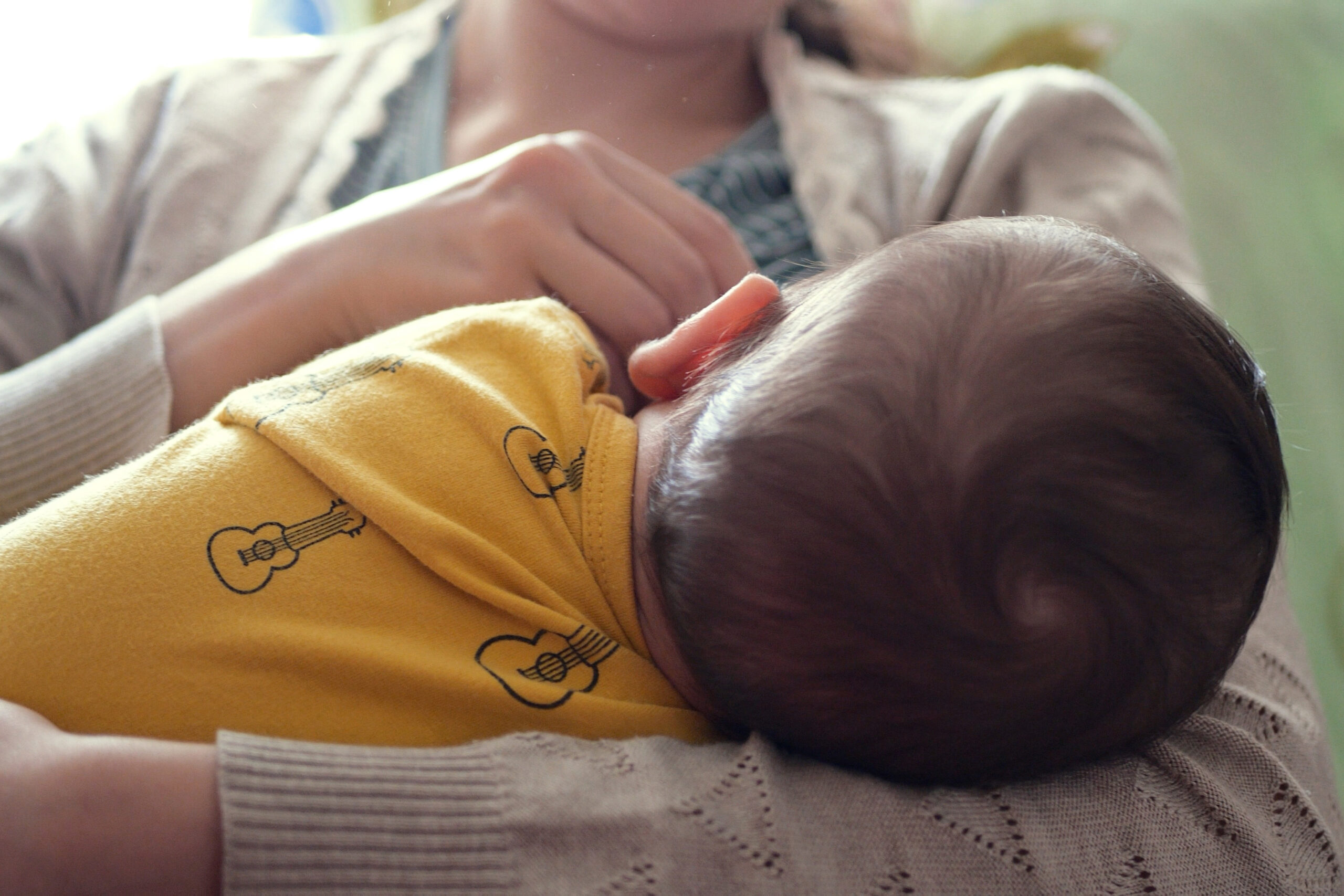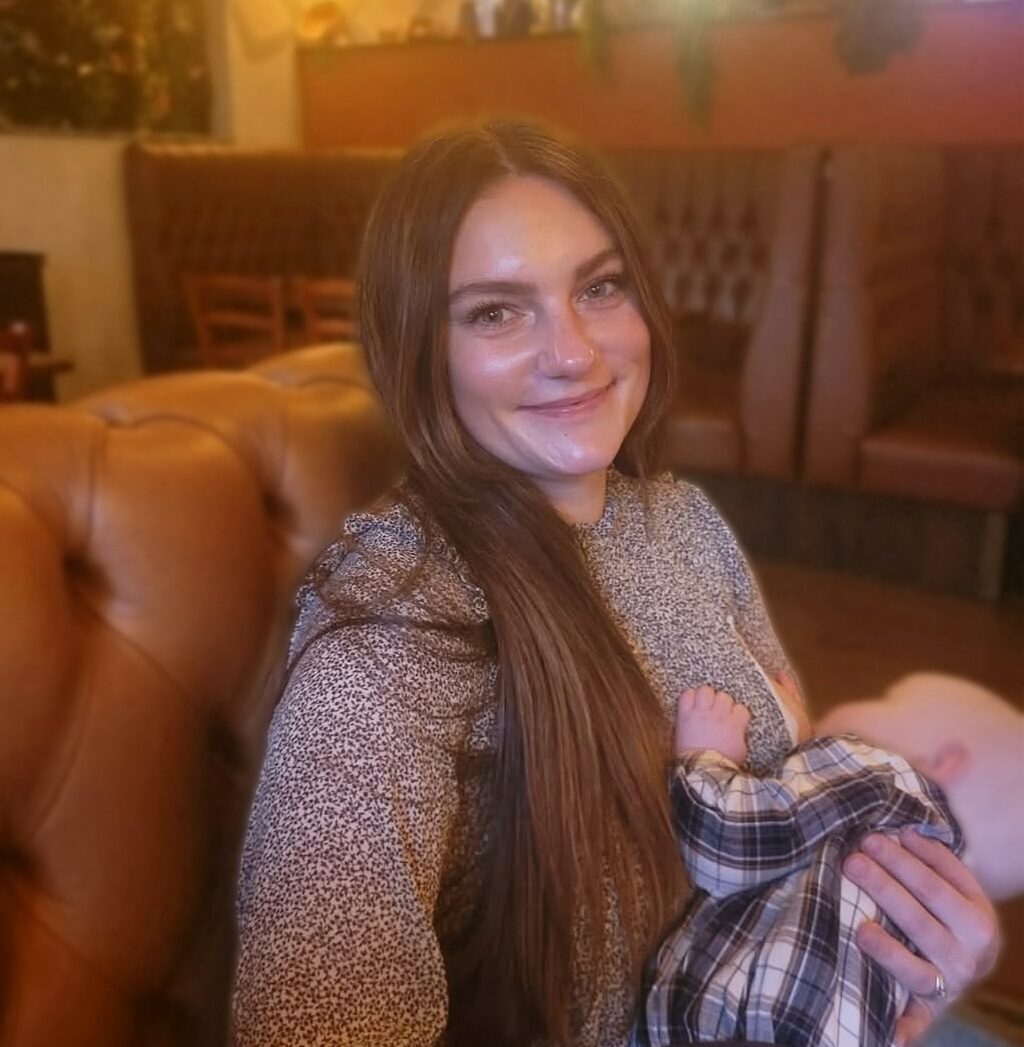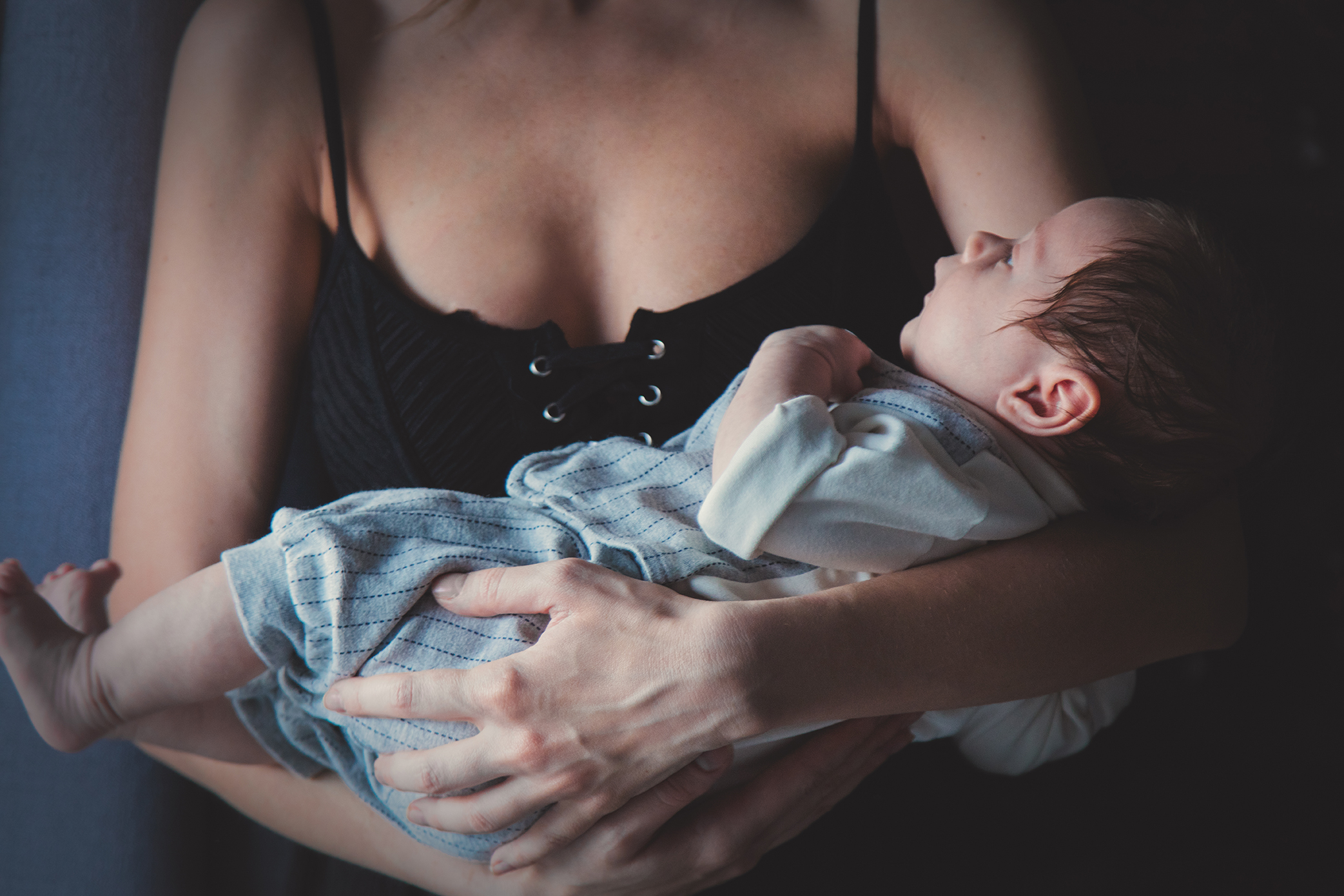It’s the day after your birth and you are getting into the swing of things. You have had a few post birth meals of jam on toast and you are starting to feel human again!
The first night went smoothly. Your baby snoozed away in their cot in between a couple of feeds. You are expecting a similar night…
Then BAM… on the second night everything changes. Your snoozy, chilled out baby realises they are no longer in a warm and cosy womb and there are all these weird noises and intense lights around them. Everything is overwhelming and SCARY! They suddenly want to feed and be held constantly. They might stay on the breast for 10 minutes and then fall asleep. You try and put them in their cot and they wake up again and start rooting around and looking for you… the cycle repeats for the entire night and you end up feeding this tiny human around 100 times.
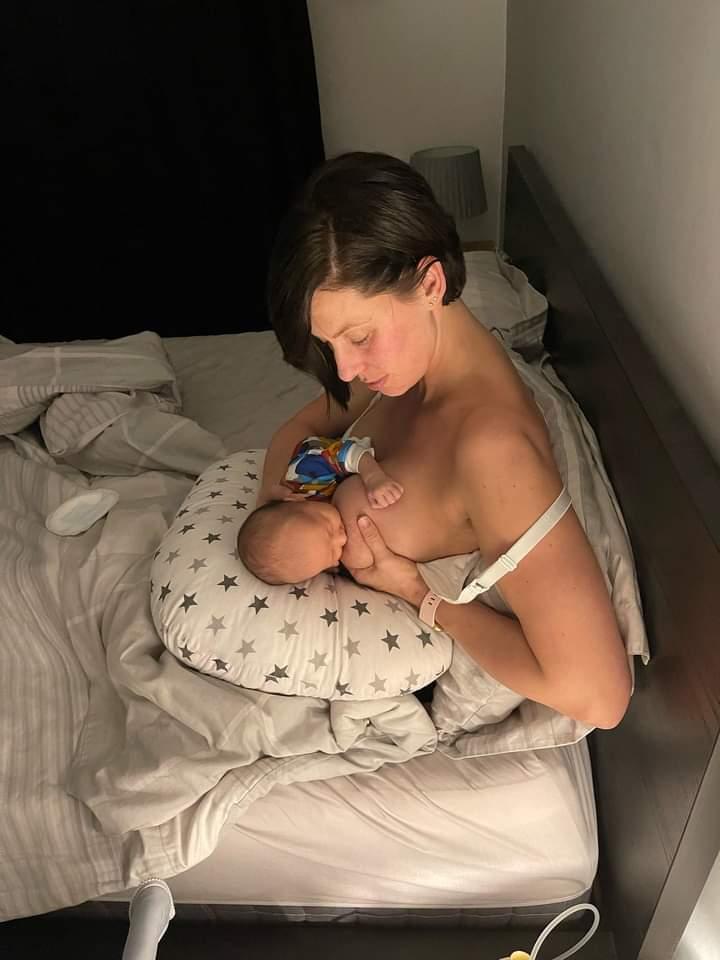
The Second Night Syndrome
It’s tough.. but it doesn’t mean your baby is ‘starving’
I often find parents are concerned about this intense second night; they ask me whether it means that their baby is starving hungry or whether they have a low milk supply. But the Second Night Syndrome is NORMAL, despite being incredibly exhausting.
It has been theorised that on the second night babies suddenly wake up to the world and realise they are not in their familiar home of nine months anymore. They know that the safest place to be is on their parent’s chest and they insist that this is where they will stay! The constant feeding helps babies make the most of the nutrient rich colostrum and increase the parent’s milk supply, transitioning it into mature milk.
It has been theorised that on the second night babies suddenly wake up to the world and realise they are not in their familiar home of nine months anymore.
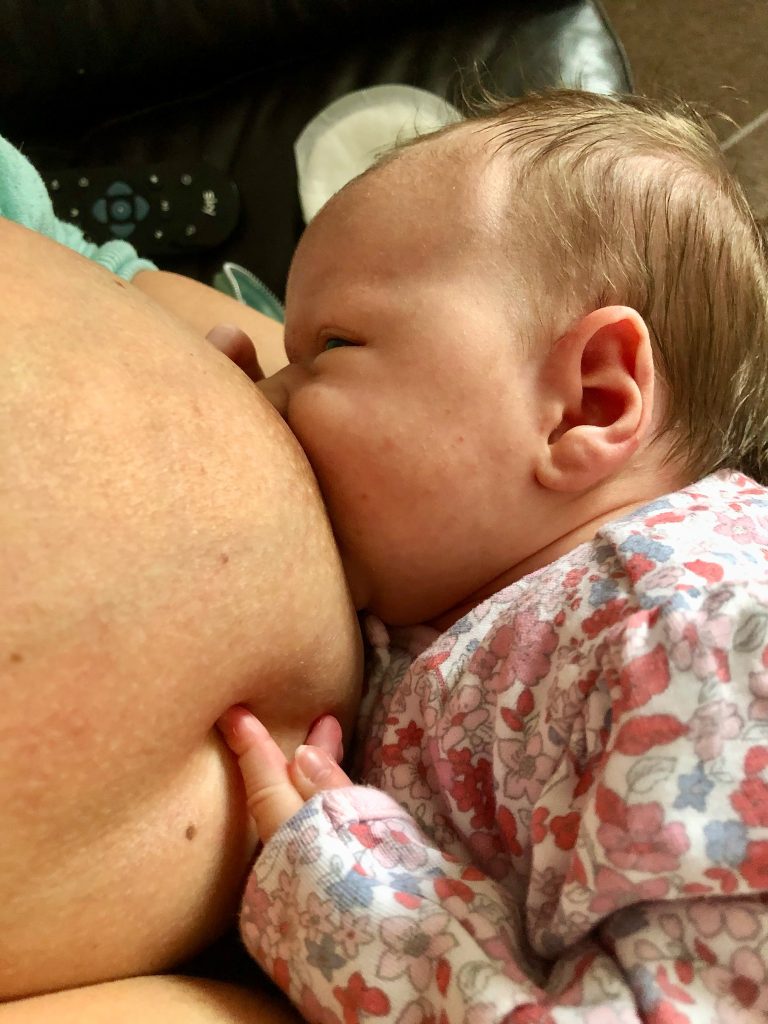
Sleep deprivation and feeding frequency
The hardest part about the Second Night Syndrome is that usually parents are so excited / wired / overwhelmed the first night after birth that they do not sleep. Instead they watch their new baby and take a billion photos of them to send to everyone. By the second night they are READY for some sleep. But baby has different ideas.
I remember feeling like I was undergoing some sort of sleep torture in my hospital bed – trying to keep my eyes open while breastfeeding every 20 minutes. At the time I had no idea it was normal. I can so easily see how a parent could start doubting their milk supply when they’ve been told that feeding 3 hourly is normal. Once your milk starts to transition into mature milk, the feeding frequency does tend to settle down. I’m not saying that babies don’t feed very often (8-16 times in 24 hours is normal) but it does not tend to be quite so intense after this second night. I promise – you will sleep again.
Once your milk starts to transition into mature milk, the feeding frequency does tend to settle down.
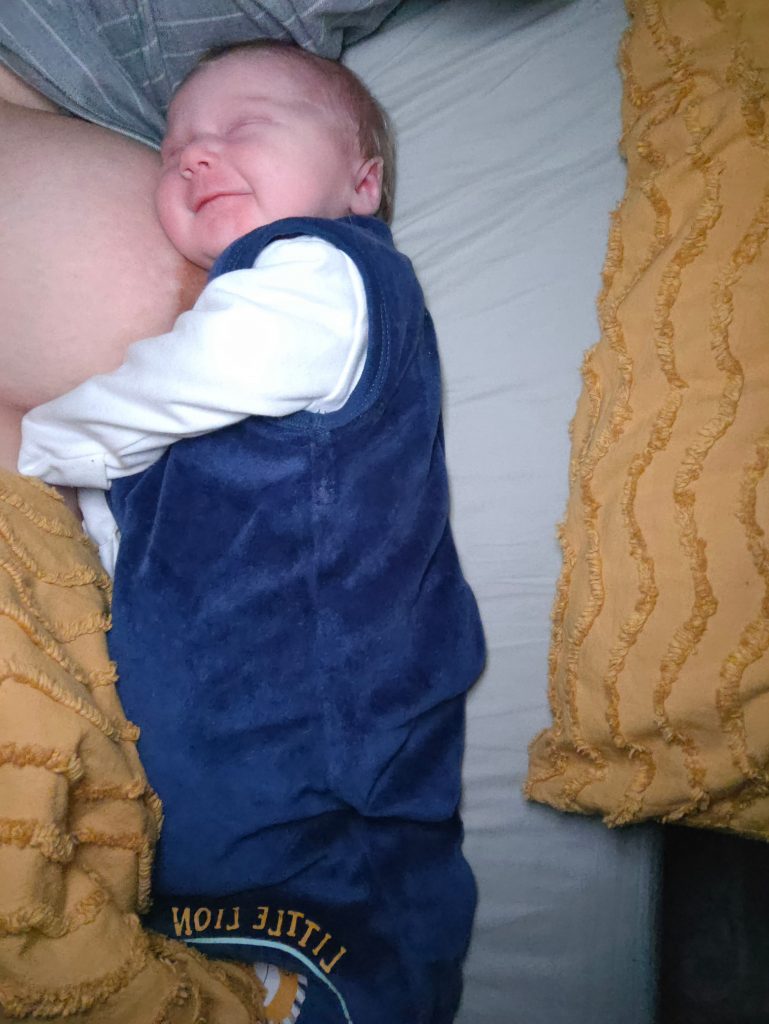
How to get through the second night with your baby
So… how do you get through the second night?!
- Hold, comfort and cuddle your baby skin to skin as much as you can. Consider safe bed sharing (Look to the Lullaby Trust safe co-sleeping guidelines).
- Prepare. You might be able to work out a plan with your partner/mum/friend to help support you during the night and take turns holding your baby.
- Nap whenever your baby sleeps – even short sleeps can be really restorative One and a half hours is a complete adult sleep cycle and even a 20 minute power nap is great for you.
- If you are unsure if baby is latching or drinking well reach for support. If you are still in the hospital ask the midwives / infant feeding team to come and see you and reassure you that everything is going well. If you are at home, you or your partner could call the breastfeeding helpline – it is open 24/7.
Just knowing that the second night is usually tough might help you to relax a bit. Cluster feeding during the second night does not mean you have a low milk supply or anything is wrong with your baby. Whilst frequent night feeds are common and important for babies, this second night will probably be one of the most challenging.
References:
– https://www.lullabytrust.org.uk/safer-sleep-advice/co-sleeping/





